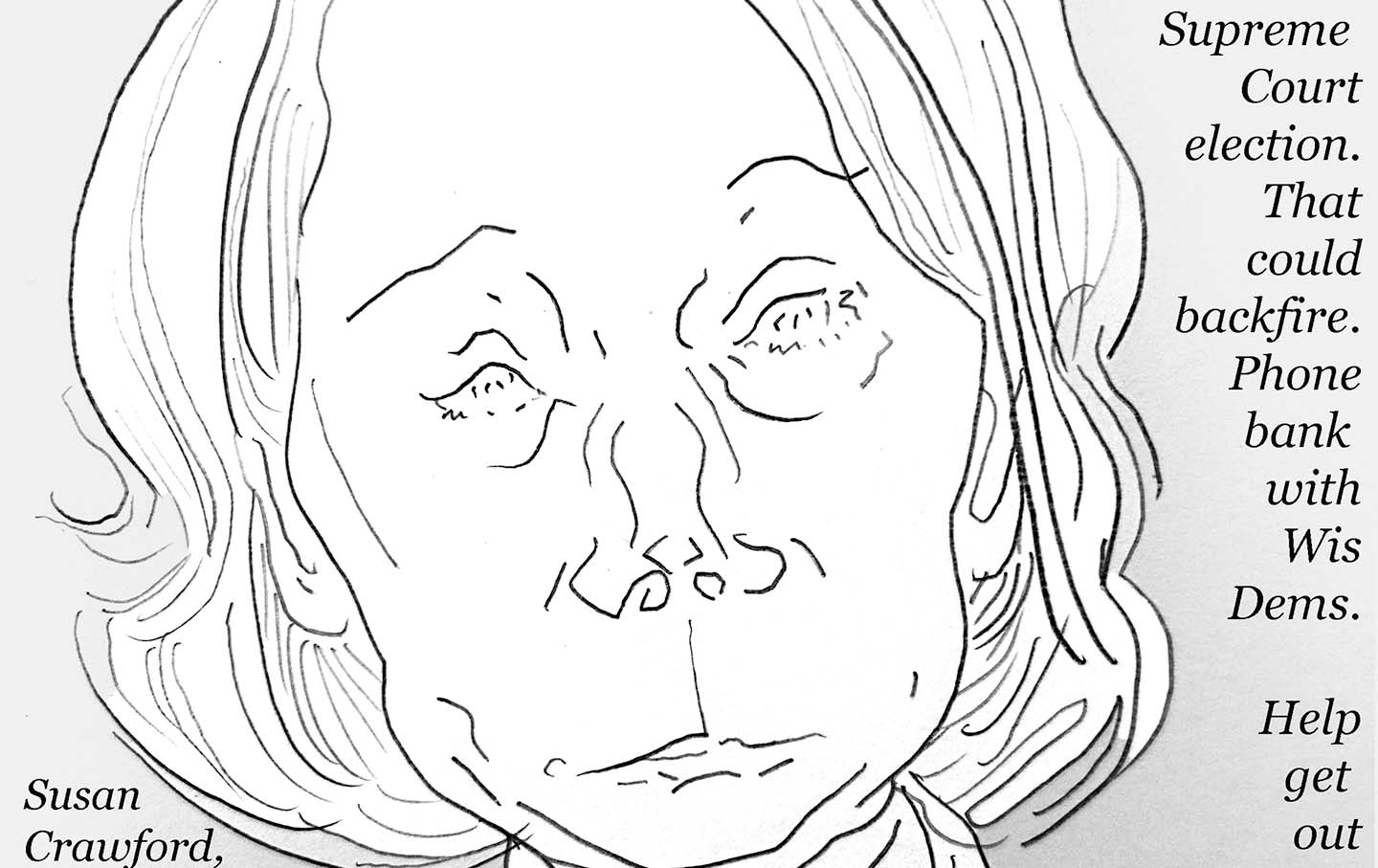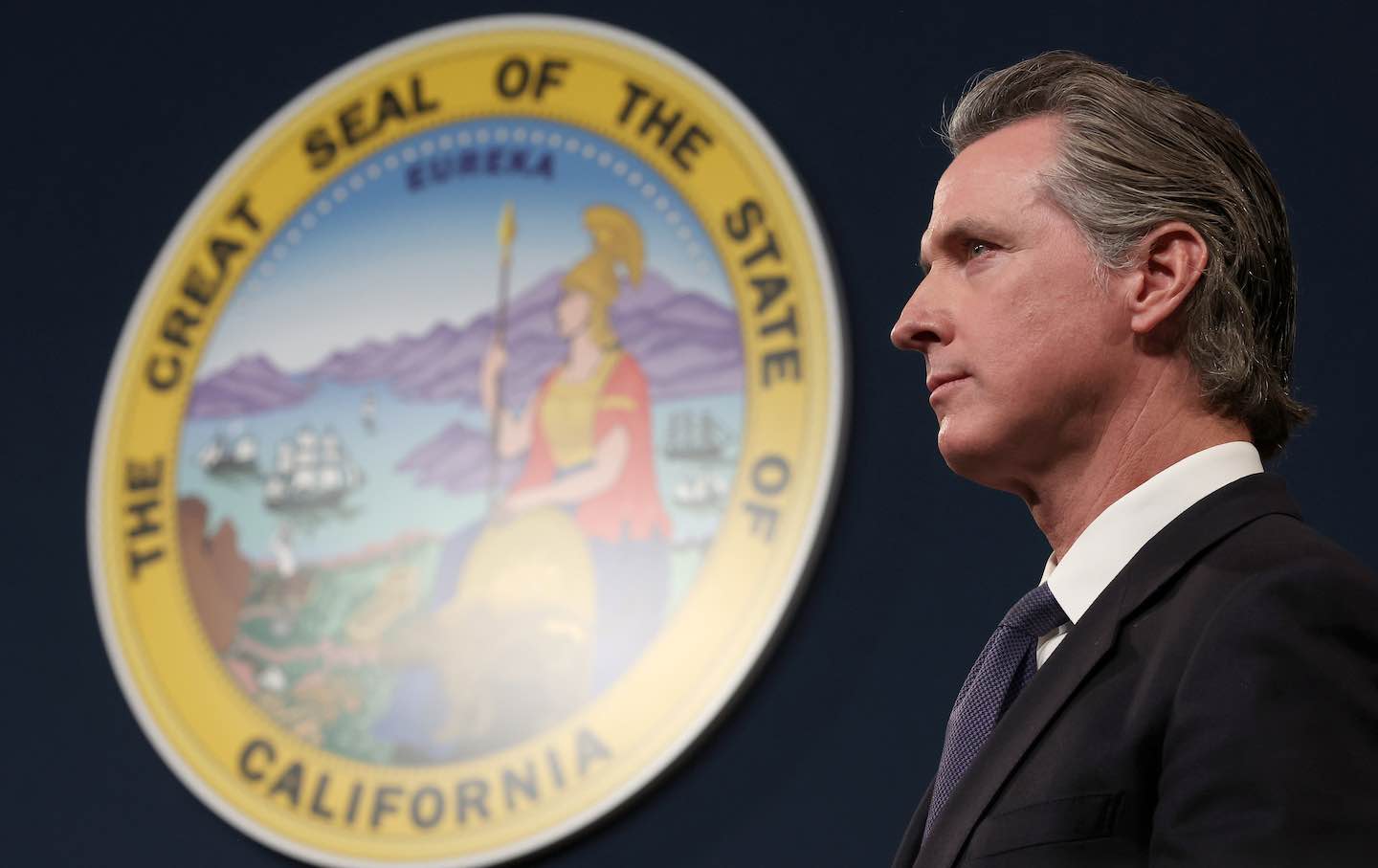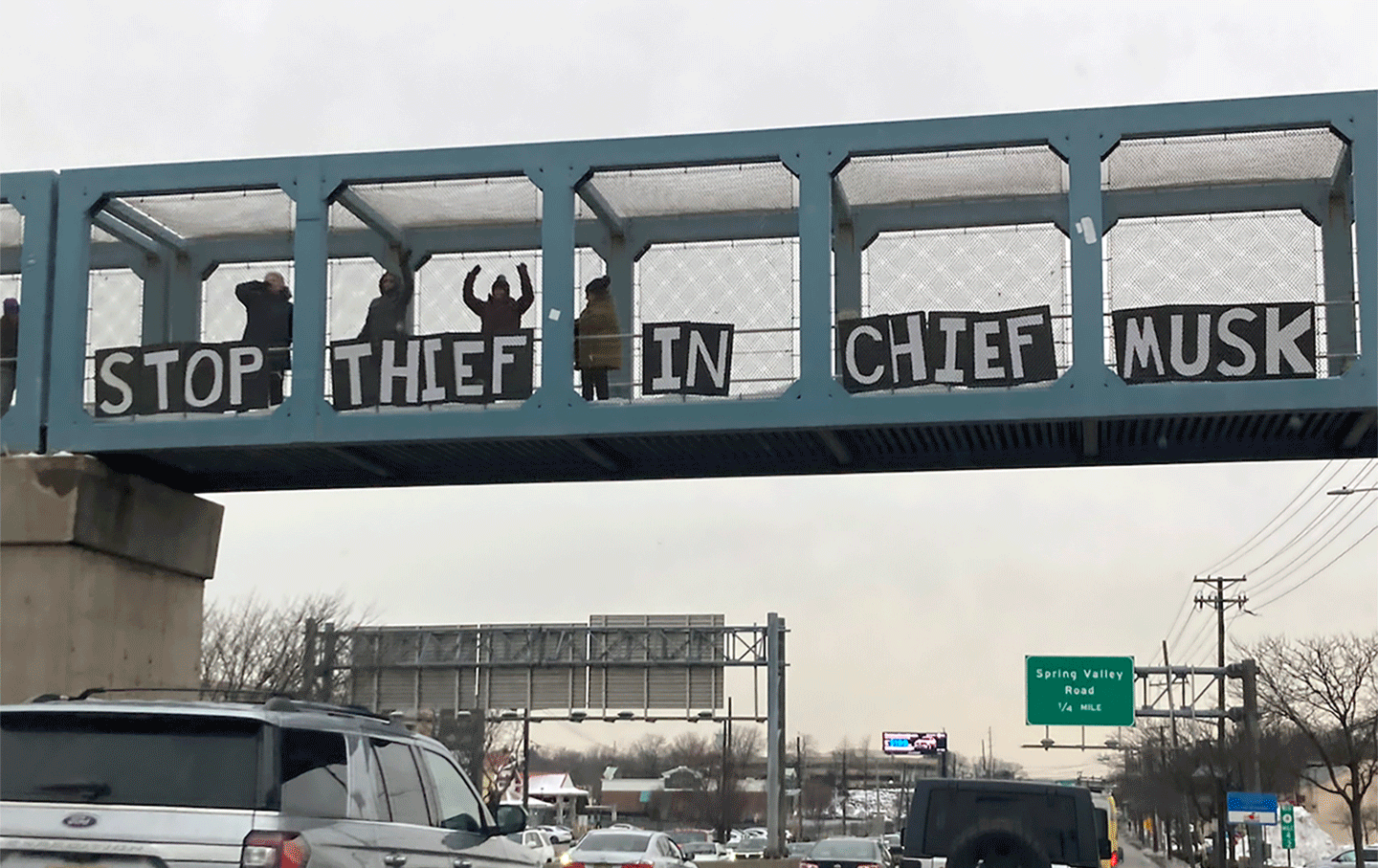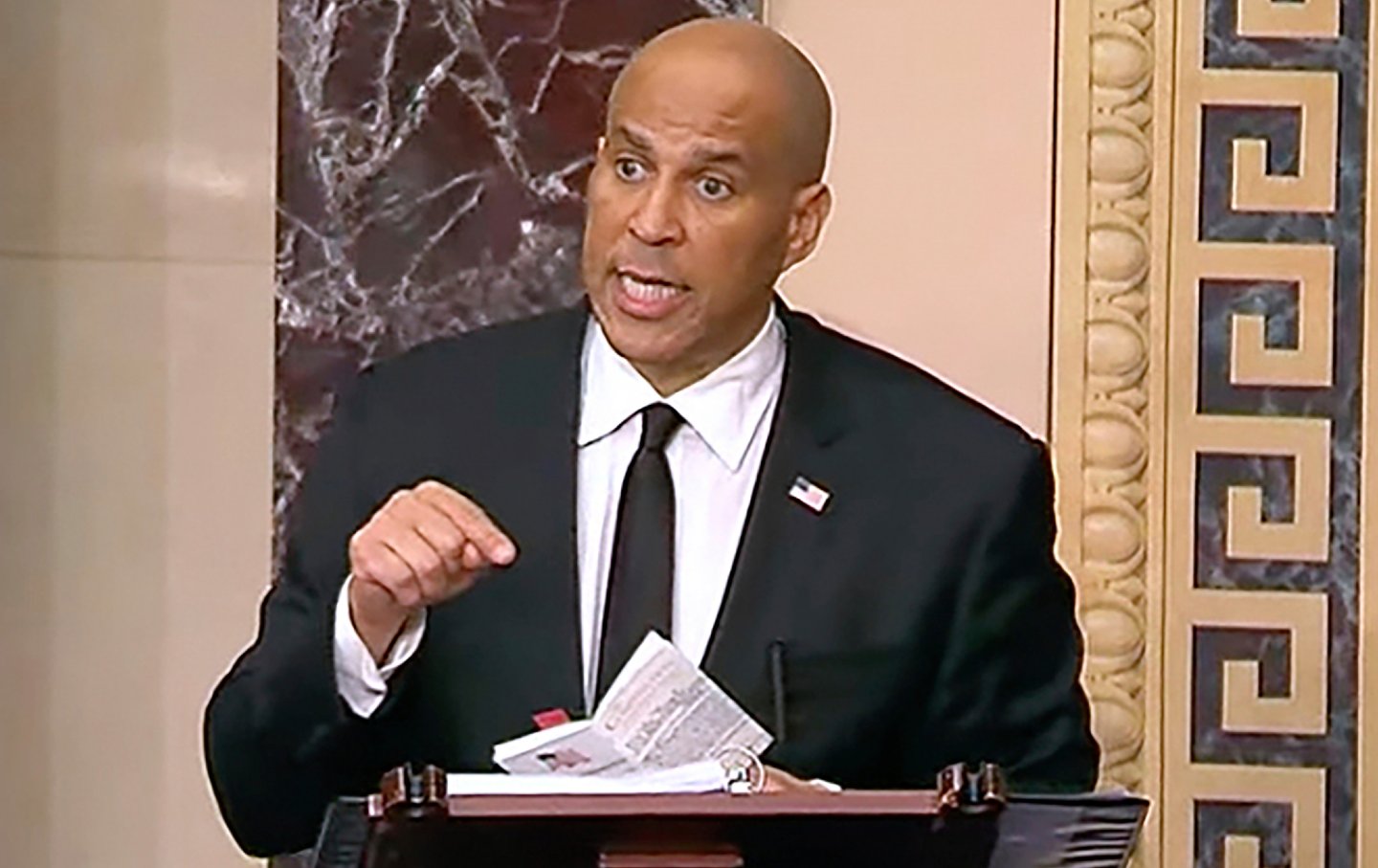Peering Into the Minds of the Moderate White Women Who Might Just Save Us From Trump
Once Kamala Harris became the nominee, a significant number of white women shifted their support to her. Can she close the deal?
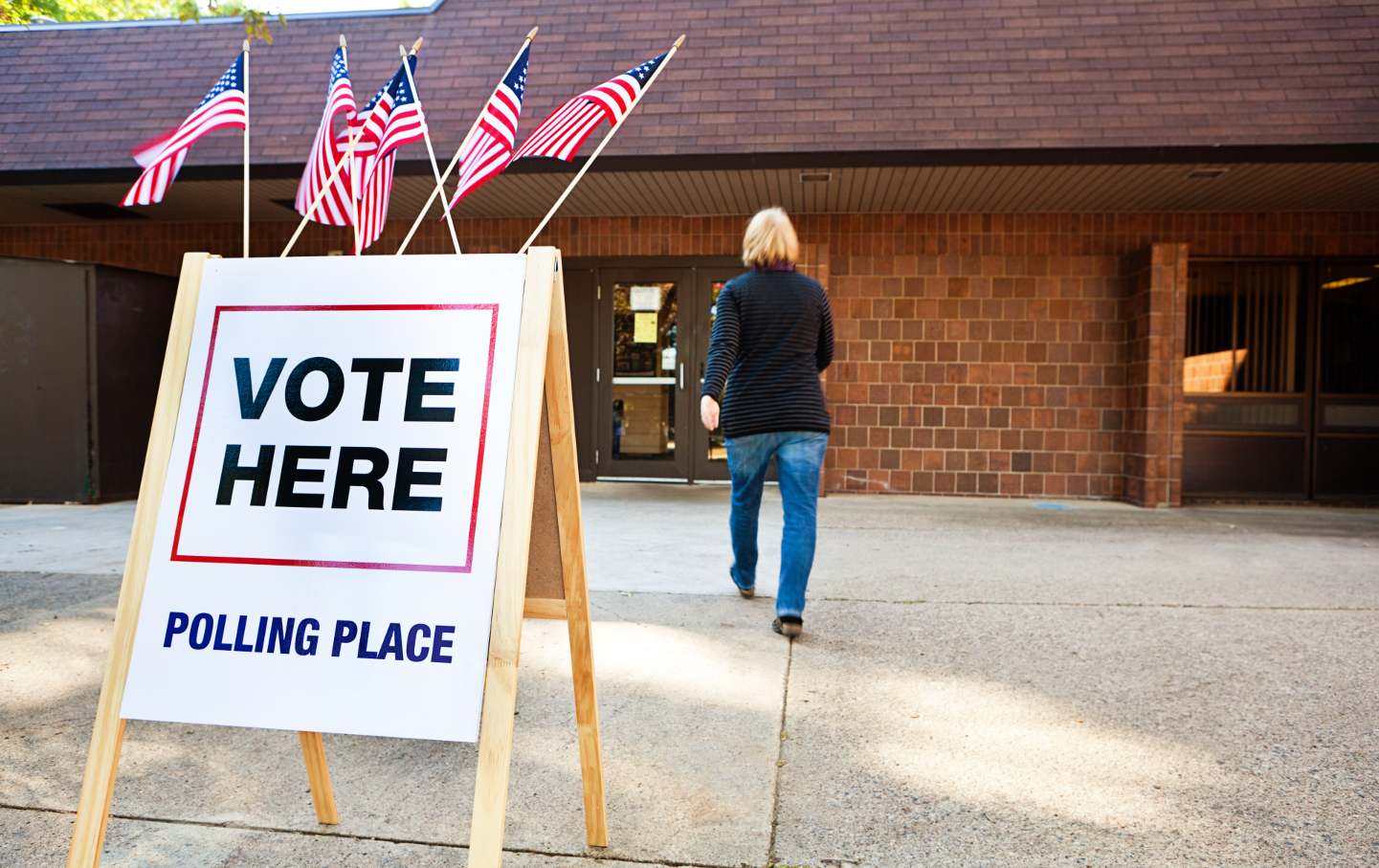
On a weekday in mid-October, I log into a virtual focus group to eavesdrop on a group of women who could determine whether we reelect Donald Trump. They sit at kitchen tables or on couches and sip from mugs or Styrofoam cups. Most live in swing states. Some pet their cats. They look surprisingly nonchalant given that our democracy rests in their hands.
They are all white women, a handful of representatives of the voting bloc that makes up an astounding 38 percent of all people who vote in this country; in the swing states of Michigan, Pennsylvania and Wisconsin they make up an even higher proportion of the electorate—42, 43, and 44 percent, respectively. For the past decade, white women have turned out to vote at a higher rate than any other demographic. But, despite an overall gender gap in which women favor Democrats, white women don’t; in 2016, more white women voted for Trump than for Hillary Clinton; in 2020, an even higher percentage, 53 percent, went for Trump over Biden. As my Nation colleague Kali Holloway noted, only twice since 1952 have white women chosen the Democrat: Lyndon Johnson in 1964 and Bill Clinton in 1996. But this is the first presidential election since the Supreme Court overturned Roe v. Wade, which means white women have a chance to show the president who vaporized their rights that he no longer has their loyalty. They’re not off to a great start; as Holloway noted, in the 2022 midterms, just four months after Dobbs, 55 percent of white women voted for Republican candidates, a higher percentage than in 2018.
But since then, cracks have begun to show. An August poll found that after Harris became the nominee, a growing share of voters in swing states called abortion central to their choice of candidate, and far more of them trusted Harris than Trump on the issue. The increase was particularly steep among women. White men and women had been basically tied in their support for Trump before the convention, but Harris’s nomination changed the math dramatically, pushing white women 11 percentage points away from Trump while white men shifted eight points toward Trump. The most recent ABC News/Ipsos poll showed Harris with a narrow lead among likely voters driven in part by an increase in her advantage with suburban women. One recent CNN poll predicted that Trump would do worse among white women than any Republican candidate this century.
“In these battleground states, where white voters are such a huge share of the vote, whichever candidate does better connecting with these movable white women, it could be determinative,” Jackie Payne, founder of Galvanize Action, told me. Her group focuses on studying and moving moderate white women—those who are not fixed on either end of the political spectrum—on issues like the climate, healthcare, and abortion. With the election around the corner, they’ve been running focus groups to determine what moderate white women care about and whom they’ll be voting for. In Galvanize’s most recent polling, the economy reigns supreme; 35 percent of white moderate women ranked it as their top issue, while abortion was their fourth-most-important issue (11 percent), after preserving democracy (18 percent), and immigration (14 percent). This latest poll showed an encouraging trend: White moderate women who had been evenly split between Trump and Harris in June were now tilting toward Harris by two percentage points.
It’s not just the presidential candidates who are trying to woo this demographic. In many of the record 10 states where initiatives to protect abortion rights are on the ballot, strategists have geared their message toward moderates, targeting women who might vote Republican and for abortion rights. In Florida, where Republicans outnumber Democrats, and the initiative to enshrine abortion rights must clear a steep 60 percent threshold to pass, the pro-choice Yes on 4 campaign has tuned its messaging to a moderate frequency:
“Do not attack Republicans (including DeSantis or Trump) directly,” internal guidance sent to supporters by the campaign and obtained by The Nation urges. “Instead, refer to ‘extreme politicians’ who banned abortion.”
“Unless communicating with our base or other activists, do not mention Florida being a safe haven for abortion in the Southeast,” the guidance goes on. “For many swing voters, doing so triggers concerns about ‘abortion tourism.’”
“Conversely, when telling abortion stories, do not focus on travel stories,” the points go on. “Instead, focus on stories when the health of the woman and/or fetus was at risk, or when the patient was the survivor of abuse.”
Natasha Sutherland, spokesperson for the Yes on 4 campaign, said the internal guidance was designed “to ensure that folks that are talking about this issue remain surgical and laser-focused on the points that we know resonate broadly.” The Florida campaign—which has the most high stakes of this election year precisely because Florida was a safe haven for abortion access in the South—recently announced that it had raised $100 million, the most by any abortion ballot initiative since Dobbs. “Overall, our message is really broad, and it’s one that has to resonate with all people and essentially answer the question: What’s in it for them? Because if we don’t make that case, they’re not going to hear anything else we have to say,” Sutherland told me.
Stories about health risks and abuse are the ones that “tap into the empathy of most people very broadly,” she added, noting that stories about miscarriage, for example, can be an entry point for voters who may not realize that abortion bans put miscarriage care at risk.
Democratic candidates, too, have been emphasizing these harrowing stories, hoping to connect with the strong majority of women, including white moderates, who want abortion to be legal—although just 48 percent of moderate white women in the latest Galvanize poll said they would only vote for a candidate will take action to protect abortion for everyone.
This gap between pro-choice leaning and partisan loyalty is one of the many puzzles intrinsic to white women voters, so when Galvanize agreed to let me lurk in their focus groups and listen to moderate white women talk about the election, I jumped at the chance, with two questions in mind: What are white women who still support Trump thinking, especially on abortion? And in the long term, what is won or lost when movements and political candidates shape their messages around what moderate white women want?
I was about to get a crash course in the first point.
On my screen, four women appear, next to a moderator from a market research firm. Three of the women are from Michigan and a third is from Ohio. They use words like “worried,” “nervous” and “unexcited” to describe their feelings on the election. Asked to describe the top challenges facing the nation, they talk about inflation— gas and grocery prices. Then they talk about how abortion is not a big issue for them at all.
A single 48-year-old mom from Michigan is the first to bring it up; she says maybe abortion would have been a top issue for her when she was younger.
“For me I’m not in that age range,” she tells the group. “I think maybe, like, 10 years ago, I would have been more concerned about [abortion]. But where I’m at right now I don’t foresee that happening.”
A recent Gallup poll found that women ages 18 to 29 are significantly more liberal than their older peers. This generation doestend to need abortions, and came of age during the Trump era and the reversal of Roe. But the 48-year-old Michigan woman seems more concerned about immigration. She says she heard a story about a woman who had a paperclip placed in her rear-view mirror, a trick, she believes, to get unsuspecting drivers to pull over so that someone, maybe an immigrant, can abduct them. (I couldn’t find any evidence that this is not completely made up, nor can I explain the precise mechanics of how a paperclip—maybe the rattling sound?—would make someone to pull over.)
A 62-year-old divorced mom in Michigan also named immigration as a top issue, voicing concern about “parks taken over by homeless encampments” in places like Berkeley, California. “I’m not saying those are illegal immigrants, but I’m just saying, the influx of people into this country, that I don’t think we can support everyone,” she says.
Popular
“swipe left below to view more authors”Swipe →Abortion is not important to her, either.
“Not at all; it doesn’t even play into my mind,” she says, calling it “a court issue.” “I kind of scoff at the ads,” she says, describing ads that warn of how women or doctors might go to prison for abortion. “I mean, that’s a ridiculous, ridiculous remark.”
“If it were against the law and they did it, they probably could go,” the moderator notes
“There would be prison overcrowding, I suspect; they’d have to build a lot more prisons,” the woman scoffs.
The third Michigander, a married 52-year-old mom, seems to agree; she says she’s had to “educate herself” on the issue. “I would like it to be protected nationally, but I understand that it’s a state decision,” she says.
When asked to describe Trump, none of the women are anywhere near enthusiastic. They say he’s “over the top,” “arrogant,” “egotistical,” and “a little pompous,” and reaching for a positive, the 48-year-old Michigander with the paperclip story adds: “a good businessman.” Asked to describe an ideal candidate, they use words like “trustworthiness” and “honesty” that, at least some of them acknowledge, have no relation to Trump.
But here’s the thing: They’re voting for him.
“I’m leaning towards Trump because in terms of policy and that sort of thing,” the 62-year-old divorcee says. “But again, I know what that all will entail, and from the past election, when he disputed the results, it’s just like, oh my God… I don’t want to suffer through it.”
The moderator seems genuinely confused.
“Are you saying you’ll vote for him so that he won’t dispute the results?” she prods.
“No,” she says, it’s because of “foreign policy, the strength of this country, getting it back on track, not over-spending, those are my leanings. However, that’s personality aside.”
Why not Harris, then?
“I don’t really know her message; it’s not perfectly clear,” she says. “She is rather vague.”
The 52-year-old fellow Michigander agrees, “even though I think his leadership is questionable” and she wishes he would “grow up.”
There’s a fourth woman in the group, a retiree from Ohio who calls abortion “a core value” of hers although it’s not clear if she is for or against it. She’s genuinely on the fence between Trump and Harris. It’s only later that I’m told this group is made up of moderates who happen to lean conservative. Galvanize tries to put like-minded people together to more easily identify themes and make participants more comfortable. So what are white women who are still voting for Trump thinking? One answer from this group is that their fears—including baseless conspiracy theories—about immigration, seem to be swaying them far more than abortion rights. Another answer, confirmed by the latest Galvanize poll, is that 46 percent of white moderate women believe Republicans are better for the economy, compared to 34 percent who think Democrats are better.
The next two groups are moderates who lean liberal, more emblematic of the tilt toward Harris in the recent data.
The most interesting member of the second group is a 64-year-old married mom from Pennsylvania who voted for Trump in 2016 but regretted it right away, she says, when he started ranting about crowd size and she realized “we’re in batshit crazy narcissist land.” Now she’s voting for Harris, whom she calls “one badass Democrat,” even though she is a Republican. “I’d vote for a fire hydrant before I would vote for Trump,” she says.
The moderator asks the five women to write down their most important issues on a piece of paper. Two write down the economy, one—the Pennsylvanian—writes down “preserving and protecting our democratic government,” and two write abortion or women’s rights; the latter two are a Michigander who usually leans Republican and a married 56-year-old who just moved to an area of Wisconsin she calls “Smalltown USA.”
“Since they got rid of Roe v. Wade, I mean, you know, leave well enough alone,” the Wisconsinite says. Asked to describe her ideal candidate she says it’s someone who would: “Give women back their right to an abortion if they want one, for whatever reason they want it.”
A retired 58-year-old grandma from an area of Ohio that tilts toward Trump apologizes that JD Vance is from her state.
“I’m just appalled at some of the things that are happening, because this is the state that had the 10-year-old girl that was raped that had to go to the state next door to get an abortion,” she says, and the group gives a collective “aw” of sympathy.
It’s clear that for many of the women in this group, abortion is a defining factor in how they’ll vote, and Dobbs has severely alienated them from Republicans. Within their passion for abortion rights, I hear a range of messages that have reached them: there’s the 10-year-old rape victim, the ultimate sympathetic abortion patient, but there’s also the staunchness of the woman in Smalltown USA: “Give women back their right to an abortion if they want one, for whatever reason they want it.”
How many women are there who feel this strongly, across the crucial towns in Pennsylvania, Michigan, and Wisconsin where the election will be decided? Are there enough of them to tip the election to Harris? It’s one of the defining questions of this election—and the last group leaves me hopeful that the answer could be yes.
This group is made up of five women from Wisconsin, Ohio, Michigan, and Pennsylvania who are leaning toward Harris, and all but one mention abortion as a top issue right off the bat.
“I hope Trump doesn’t win; as a woman in this country if he wins, we’re in trouble,” says a 34-year-old in Michigan.
“Being a female right now, going through this, watching both sides, and having two young daughters, there’s certain things that are important to me,” a 45-year-old fellow Michigander agrees.
An Ohio mom says her top issues are “women’s reproductive rights and then, I feel like, healthcare as a whole—healthcare is so expensive, it seems like it should be a right to have access to good, quality, affordable healthcare.”
Perhaps most hopeful of all, at least one member of this group draws a connection that Galvanize says has been echoed by others in this demographic—between abortion and democracy.
Asked to list her top concerns, a 42-year-old mom in Pennsylvania says: “I’d say protecting democracy, the right to vote, and free speech, but abortion—not that I’m an advocate for it—but I think it’s a slippery slope …if we bend on that, then what’s going to be next?”
This woman is the kind of voter that pollsters have under a microscope, because she’s from Pennsylvania, a key battleground state, and because she seems genuinely movable; she was so impressed by Vance’s performance in the debate that it sounds like she considered voting for Trump, but the campaign’s attacks on FEMA after the hurricanes in the South bothered her. Plus, abortion and democracy, which she sees as intertwined, are her top issue. “Women should be able to choose for themselves.”
In the second two focus groups, it’s clear that abortion has played a role in pushing these voters toward Harris. They want a candidate who will restore abortion rights. So it’s no surprise that candidates have prioritized speaking to them; Harris has made abortion a cornerstone of her campaign like no other Democratic presidential candidate in history. But what are the long-term costs of pitching the message specifically at moderate white women, who tend to vote more conservatively than the women of color most impacted by abortion bans?
In the short term, maybe you win elections. But in the long term?
In the long term, there are risks to a political system that can’t help but prioritize this demographic.
“The majority of people who have abortions are people of color,” Renee Bracey Sherman, founder of WeTestify and author of the new book Liberating Abortion, told me. “The majority do not want to continue a pregnancy, either because their family is complete, or because they don’t want to have a child, or because they cannot afford to have another child.” That’s not evident in many of the pro-choice political ads this cycle, which tend to feature women, often white, who suffered miscarriages or fetal or maternal health indications. These ads “don’t help people understand why they should support all of us who need abortions.”
These ads about heartbreaking loss and crisis scare Republicans—which is why a federal judge recently had to order the administration of Florida Governor Ron DeSantis to stop threatening TV stations with criminal charges for airing them. The ad in question features a Tampa mom who was diagnosed with brain cancer while pregnant, talking about how the state’s six-week ban would have stopped her from getting an abortion so she could start cancer treatment. Of course, the campaign has the right to run this ad. As the judge said: “It’s the First Amendment, stupid.” But a deeper question is whether ads like this, which are being run across the country in this banner year for abortion rights, are going to help build the kind of intersectional movement for reproductive freedom we need.
After watching the focus groups, a part of me wondered whether these campaigns might be underselling white women, missing the opportunity to plant the seed of a less qualified support for abortion access. As I wrote in August, groups like Florida Rising that work primarily with voters of color are spreading a message about how racial and economic justice and abortion are intertwined to an audience that is more likely to get it. Then, of course, there are groups like Galvanize, that are working on moving moderate white women on the issue of reproductive freedom for the long haul.
Because in the long term, the key, as Bracey Sherman told me, is that we need to keep talking about abortion, even when it’s not an election year, in order to “do the deeper work that we as a society need…so that we can liberate abortion for real this time.”
In the short term, though, if the women I listened to are any indication, these attenuated election-year messages might just be enough to save us from Donald Trump.

